There are things and habits that take away the beauty of your garden – because they harm the environment or your health. Get rid of them!
Whether it’s a leaf blower, peaty soil or too much tidiness: We show you ten things that should be removed from your garden for the sake of nature, animals and yourself.
Contents
- 1 weed killers and slug pellets: environmentally harmful, unhealthy, unnecessary
- 2 cheap plants in the garden: poison for biodiversity
- 3 cleanliness & order in the garden: no chance for bees & co.
- 4 peaty soil: climate killer in the flower bed
- 5 artificial fertilizers: harmful to soil and plants
- 6 supermarket seeds: uniformity in the vegetable garden
- 7 mistakes at the grill
- 8 leaf vacuums: superfluous noise
- 9 sunscreen: chemicals on the skin
- 10 feeding birds wrong: Well meant is not well done
- 11 Author
weed killers and slug pellets: environmentally harmful, unhealthy, unnecessary
Synthetic pesticides – for example against weeds, insects or slugs – should be absolutely taboo in your own garden. Many sprays, even those available in any hardware store, are highly problematic for nature, wildlife and also for our own health.
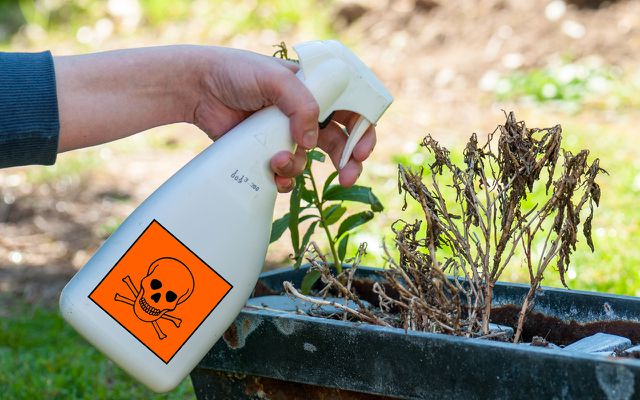
They can damage the soil, endanger bees and other insects and residues sometimes remain in the fruits of the plants
The much better alternative: Natural plant protection for garden & balcony
cheap plants in the garden: poison for biodiversity
The cheap seedlings and flowers from the hardware store, garden center or supermarket can possibly cause several problems at once. Conventional ornamental plants in particular are often alien species – their spread can endanger regional biodiversity. They are often useless to insects and bees.
In addition, such plants may contain residues of pesticides of concern. In a 2014 study, Greenpeace found pesticides that can be dangerous to bees in about 80 percent of DIY ornamental plants. In 2021, BUND tested ornamental plants explicitly sold as “bee-friendly” and found residues of bee-toxic pesticides in about 40 percent.
Moreover, because they are so heavily treated with synthetic pesticides and fertilizers, many DIY store plants do not survive long in the garden or on the balcony.
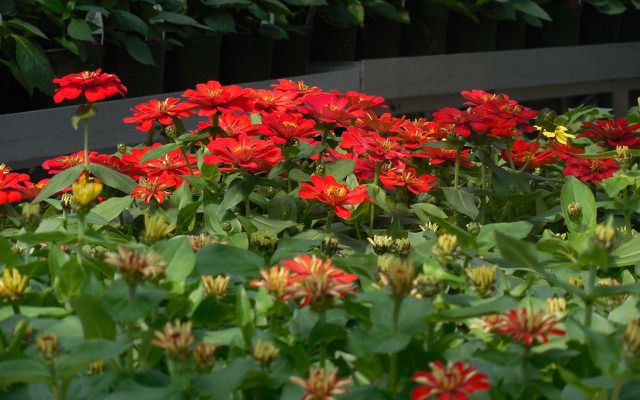
The more environmentally friendly alternative: You can get native plants and seeds – ideally from organic breeding – most easily at local nurseries, at good (weekly) markets or even online. Just ask how the plants are grown.
Info, tips and lists:
Bee-Friendly Plants: The best ideas for garden and balcony
Create a bee pasture
13 bee-friendly herbs
Bee-friendly perennials
cleanliness & order in the garden: no chance for bees & co.
Neatly mowed lawns, gravel areas, accurately trimmed hedges and tidy rose beds provide little habitat for animals. In gardens where no wild plants are allowed to grow, insects such as bees find no food or shelter. Such gardens harm biodiversity and contribute to bee mortality.
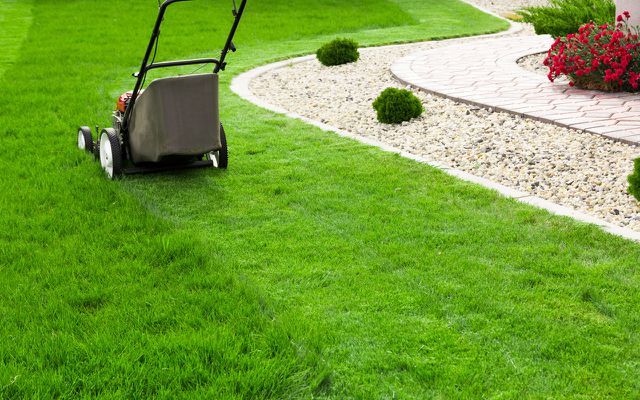
Alternative: Have the courage to be messy! Wildflower meadows, native perennials and shrubs provide food for bees, other insects and birds. Leftover leaves, piles of branches and faded flowers can provide winter food and shelter for wildlife such as hedgehogs.
peaty soil: climate killer in the flower bed
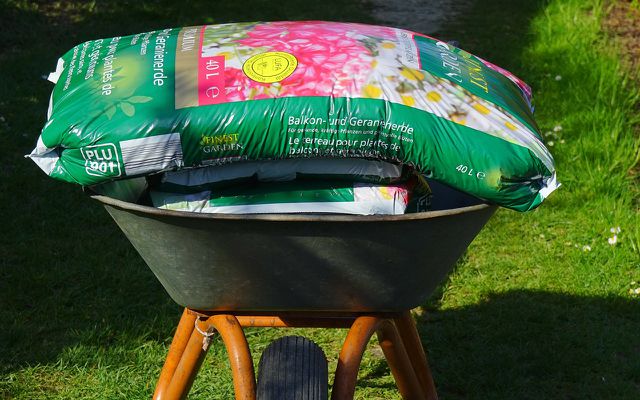
Many potting soils still contain peat. You should definitely do without it: For potting soil with peat content, bogs are still being drained and destroyed. This destroys the habitat of many plants and animals and at the same time damages the climate, because a lot of stored CO2 is released during peat extraction.
The better alternative for your garden: peat-free soil is available in almost every hardware store or garden center and in some cities also at the local recycling center. However, you should always look carefully: Even organic soil can contain peat. Even better for the soil is of course your own compost.
artificial fertilizers: harmful to soil and plants
Artificial fertilizers (mineral fertilizers, nitrogen fertilizers) cause the same problems in your own garden as in conventional agriculture: their production consumes an enormous amount of energy, the fertilizers damage the soil in the long term, and in the case of fruit and vegetables they can even impair the quality of the harvest.
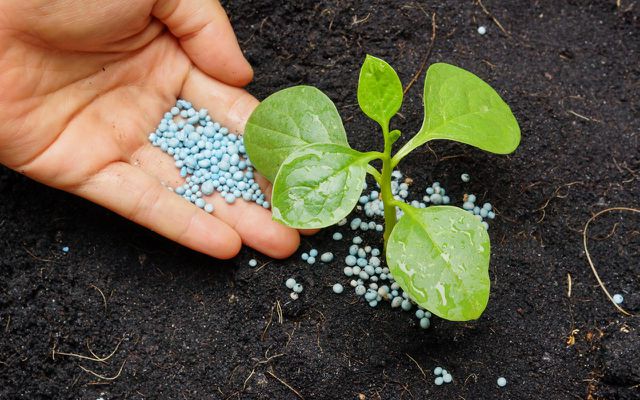
Although the artificial fertilizers provide the plants with nutrients in the short term, they do not contribute to the build-up of humus, i.e. they do not improve the soil. In addition, they are quickly washed out and thus also enter the groundwater. Treated plants are also often more susceptible to diseases and pests.
Alternative: There are many natural or organic fertilizers – for example compost, rock flour, manure, earthworm humus or herbal extracts. If you have a really large amount of space, you can also selectively use certain plants for the aforementioned green manuring.
Fertilizer for plants: Do it yourself all naturally
Fertilize tomatoes: Make your own tomato fertilizer with home remedies
Fertilizing roses: The best time and good home remedies
supermarket seeds: uniformity in the vegetable garden
A few corporations now control about three-quarters of the global seed market. Monsanto, Syngenta & Co. are keen to see old vegetable varieties die out. But we should not do them that favor.
In the hardware store or supermarket, you usually only get the same highly bred varieties, mostly so-called hybrid or F1 seeds. These cannot reproduce or reproduce with the same quality – so you are dependent on buying new seeds every year, miss out completely on how many great “old” vegetable varieties there are and the biodiversity dwindles.
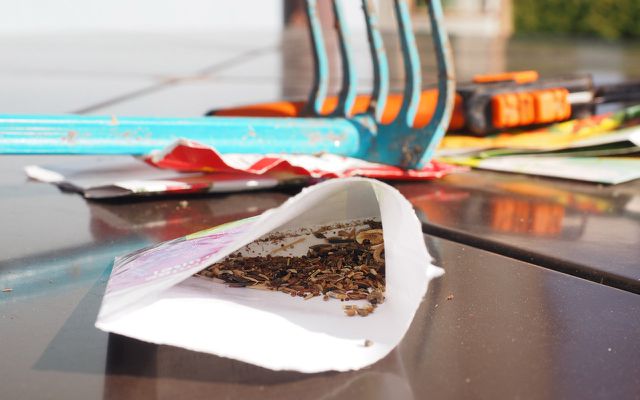
Alternative: seed resistant seed. Such high-quality organic seeds can be obtained, for example, from:
- Bingenheimer seed
- Organic garden store
- flail seed
- Samenbau-Nordost
- Samenfest
- Sativa organic seeds
- Or directly at local organic or Demeter nurseries.
Tip: Seeds from Bingenheimer are available at Alnatura. The Avocadostore** also has recommendable seeds.
Also a nice idea for kids: make seed bombs.
mistakes at the grill
Toxic barbecue lighters, barbecue charcoal from rainforest deforestation, cheap meat: When barbecuing, you can do some damage to yourself and the environment. Especially for those who often use the summer for barbecuing and who may even have invested in a high-quality grill, it is worthwhile to pay attention to environmentally and health-friendly accessories.

Alternative: Just a few simple things will make your barbecues more sustainable and healthier: For example, make sure you use sustainable charcoal, natural grill lighters, good organic meat and vegetables – and don’t produce so much waste.
leaf vacuums: superfluous noise
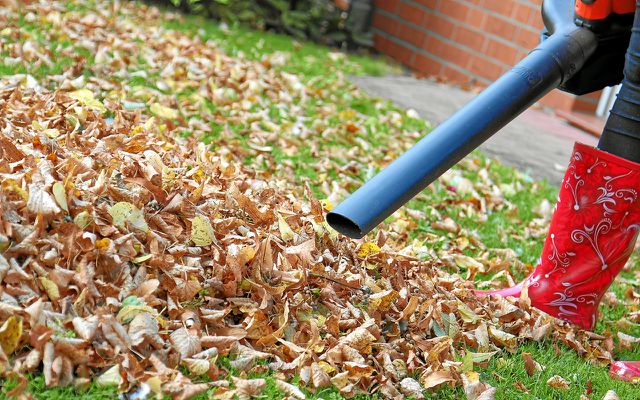
Leaf vacuums and leaf blowers are not only annoyingly noisy, they also consume unnecessary energy and models with combustion engines emit harmful exhaust fumes. In addition, useful small animals such as insects, earthworms, spiders or frogs are often sucked up with them and die in leaf vacuums with a shredding function.
Garden Mistakes: Leaf Vacuums & Leaf Blowers
Annoying, loud and unnecessary: leaf blowers (Photo: © Kathrin39 – stock.adobe.com)
Alternative: Simply rake or sweep leaves together – this is much more environmentally and animal friendly. Piles of leaves also provide shelter for animals such as hedgehogs and insects.
sunscreen: chemicals on the skin
Before your next sunbath in the garden, you should know: Conventional sunscreens protect the skin by means of chemical filters. But chemical UV filters can be hazardous to health: some can trigger allergies, others act in the body in a similar way to hormones – this can be particularly risky for children, pregnant and breastfeeding women.
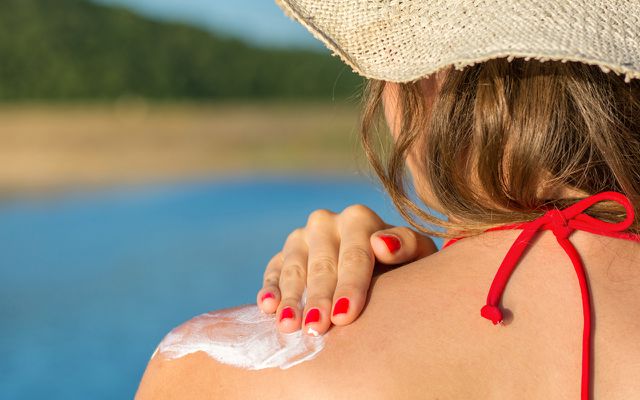
When sunbathing in the garden, make sure to use harmless sunscreen.
Alternative: first, mineral (organic) sunscreen. Mineral UV filters such as zinc oxide form a protective layer on the skin and reflect UV rays. Mineral organic sunscreen products are usually safe for health, at least if the minerals are not contained in nano form.
Second, better conventional sunscreen. The products in our sunscreen test contain no ingredients of concern other than chemical filters:
feeding birds wrong: Well meant is not well done
Those who feed the birds in their garden usually want to do them some good. But often you rather harm them and the environment – if you do not pay attention to some things. Cheap tit dumplings or poorly designed birdhouses, for example, you should avoid.
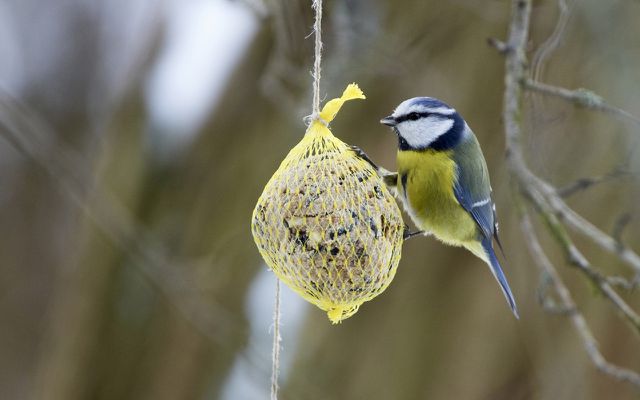
Feeding birds: Many experts recommend it only in winter. (Photo: © Michael Fritzen – Fotolia.com)
Alternative: Whether you should feed birds only in winter or all year round is highly controversial, even among experts. Important is in each case to pay attention to the correct fodder and a meaningful feeding place. With tit dumplings absolutely make sure that they are free from Ambrosia – the plant is considered as allergy-triggering.
Birdhouses should be designed so that the birds do not run around in the food and contaminate it with droppings, in addition, the food should not get wet, otherwise it will rot. Place birdhouses so that the birds can avoid possible attacks and do not run the risk of flying into window panes.

